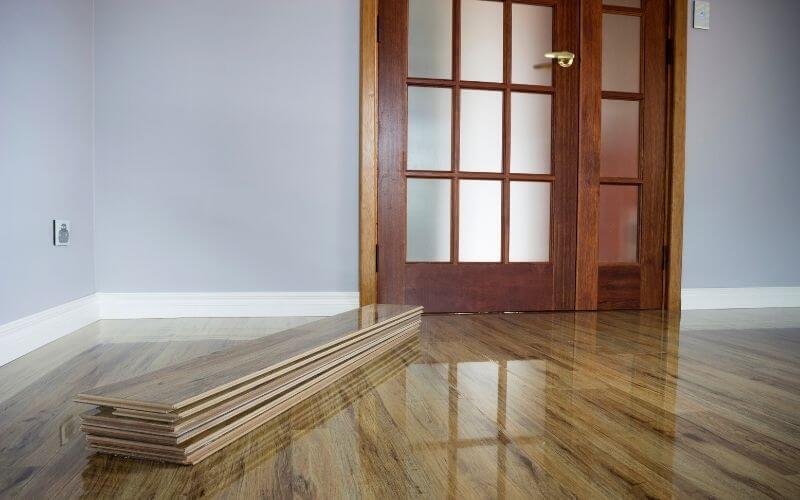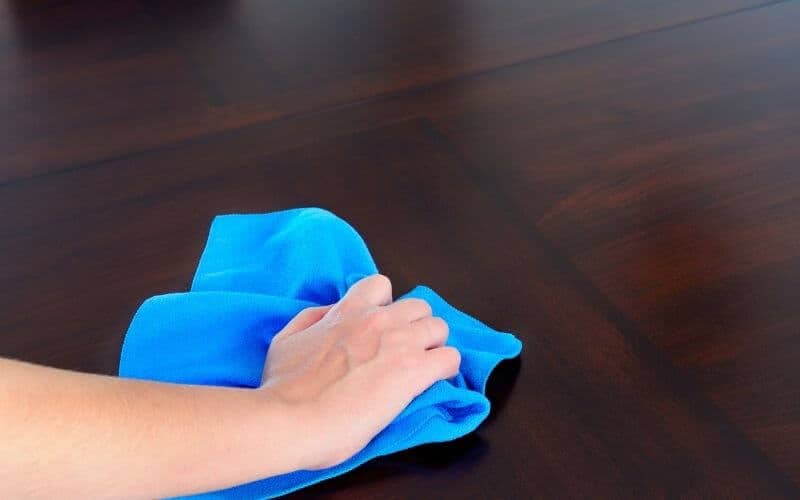Knowing if your hardwood floors are sealed or unsealed is quite important. Sealed floors are painted with surface-sealants that protect them. The sealants can be water, oil, or solvent-based formulations.
The cleaning method for sealed and unsealed hardwood floors differs, which brings us to this topic: how do I know if my hardwood floors are sealed? You can tell if your place a few drops on the floor; if the water beads up, it implies that the surface is sealed.
Now, let’s delve deeper into this post, shall we?
Read: How to clean sealed hardwood floors
How Do I Know If My Hardwood Floors Are Sealed?
Table of Contents
If you’re not really into home décor, you might not be able to differentiate between sealed and unsealed hardwood floors. It is very important that you know the type of wood floor installed in your home as detergent for finished wood floors will likely damage unfinished wood floors.
The major difference between unfinished and finished wood floors is the finished wood floors are sealed, which serve as a protective barrier against moisture.
To check the type of wood flooring installed in your home, chose an inconspicuous part on the floor and placed a few drops on it. If the water beads up, it implies that the surface is sealed (properly finished). If it gets absorbed, then the floor is not sealed, or the seal is damaged.
Alternatively, apply fine steel wool in a hidden area. If the floor is sealed with wax, you will see a grey film on the steel wool.
Read: How to clean unsealed hardwood floor
Should I Seal my Hardwood Floors?
Yes! You should totally seal your hardwood floors. There are so many benefits associated with sealed floors. It might be argued that unsealed hardwood floors add a rustic vibe to the home décor. However, such a rustic vibe can be achieved by staining your hardwood floors with an equivalent color.
Below are some of the advantages of sealing your hardwood floors:
1. It Gives the Hardwood Floor a Better Appearance
Without sealing, the finishing layer of your hardwood floor can easily be ruined both in appearance and quality. This is where sealing becomes very important.
Sealing prevents the finishing layer that goes on a hardwood floor from getting damaged, thus ensuring the hardwood floors look its best!
2. Sealing Gives Long-Lasting Protection for Your Hardwood Floor
Another reason why most modern homes have sealed hardwood floors is that its durability and long-lasting nature. Sealing your hardwood floor gives it an increased lifespan. You sure do want a resistant and heavy-duty floor, perfect for everyday use.
3. Sealing Makes the Hardwood Floor Easier to Maintain and Clean
When you check the cleaning procedure for unsealed floors, you discover that they are quite difficult to maintain and clean.
For instance, most commercial wood floor cleaners are not suitable to be used on unsealed floors making unsealed floors quite difficult to maintain.
4. Sealing Makes the Floor-Stain-resistance
Cleaning up stains on unsealed hardwood floors is time-consuming and difficult. This is because unsealed floors absorb all kinds of spills.
With sealing, you don’t have to worry about accidentally spilling something on the floor as all sorts of dirt stains will be easy to clean up.
Read: Tape that won’t damage floors
5. Sealing Makes the Floor Water-resistance:
This is probably one of the best benefits of sealed floors. It is common knowledge that wood absorbs water which, over time, damages the wooden floors.
It follows that unsealed hardwood floors cannot be installed in areas with high moisture levels, like the kitchen and bathroom.
Read: How to waterproof hardwood floors
Sealers that are Used with Hardwood Floors
Now you know the advantages of sealed hardwood floors, you might wonder about the materials used to seal hardwood floors.
Luckily, several different sealers can be used with hardwood floors, and most of them offer excellent levels of protection. They include:
- Water-based polyurethane
- Oil-based polyurethane
- Moisture-cure urethane
- Wax
- Shellac
- A penetrating oil sealer
- An acid-cured finish
- Aluminum oxide
Read: What is the best thing to use to clean wood floors
Are Engineered Hardwood Floors Sealed?
Yes. Engineered hardwood floors are sealed. Although, there are lots of arguments surrounding whether or not engineered hardwood floors are sealed.
Sometimes, it is even argued that engineered flooring isn’t real hardwood flooring, but this is not true. The top layer of the engineered hardwood floor is constructed of solid hardwood.
While engineered hardwood floors are sealed, it is still recommended to add sealant to protect them. As we know, sealing protects woods against daily wear, adds a bit of water resistance, and makes cleaning and maintenance a little easier.
Water-based polyurethane is recommended for engineered hardwood floors because it dries quickly and doesn’t yellow over time.
Read: Can engineered hardwood floors be refinished
Conclusion
Summarily, sealing your hardwood floors comes with many benefits discussed extensively in this post.
For the question: how do I know if my hardwood floors are sealed? Now you know placing tiny drops of water on your hardwood floor will easily tell you if it’s sealed or not.

